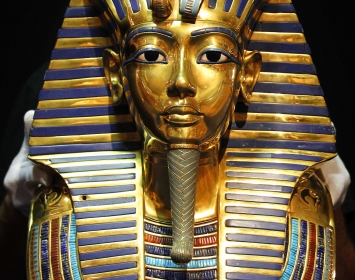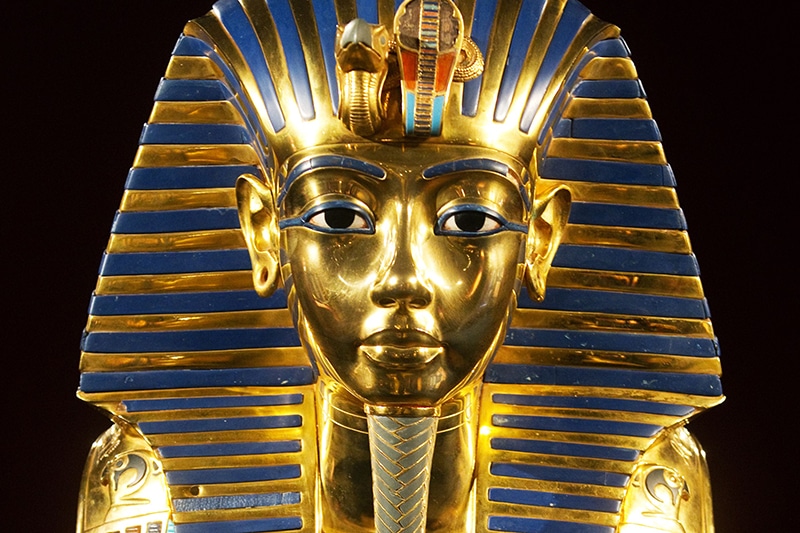Kilenc olyan dologról olvashatsz, amit az ókori Egyiptom idejében élők már tudtak. Gondolnád, hogy szervátültetésre is képesek voltak? További meglepő tények a leckében.
We usually think that we are completely different from ancient people. Weird traditions, unknown languages, and so on. But archaeology shows that we’re quite wrong.
Here is a list of interesting facts about the life of ancient Egyptians. You’ll probably learn something new.
1. They extracted iron from meteorites.
Archaeologists found metal beads in an ancient tomb. These beads were unique because the Egyptians started to smelt iron only 2,000 years later. So how did they get metal beads? The answer is hidden in one hieroglyph that means iron and can be translated as “metal from the sky.” The beads were probably made of meteorite material.
2. They invented toothpaste.
There are several proofs that the Egyptians have been producing toothpaste since 5000 BC. They used to produce powder consisting of various ingredients available to them (burned eggshells and pumice). But nowadays we don’t know the exact way to use such paste. We can only guess.
3. They used antibiotics in treatment.
Though antibiotics were officially invented in the 20th century, the doctors of ancient Egypt used moldy flatbread to cure festering wounds. And such medication worked well.
4. They formed the world’s first police.
The world’s first police force was formed during the Middle Kingdom period (years 2050-1800 BC). It included the most loyal warriors and foreign mercenaries. The Egyptian police were accompanied by dogs and monkeys. Officers protected temples and city squares, upper-class representatives, and caravans from criminals. They were just like modern policemen (but with monkeys).
5. They were the first to produce beer
Most of us know that the workers who built the pyramids were paid with 4-5 liters of beer a day. So we can conclude that brewing was at a really good level. The Egyptians were one of the first to produce this drink.
6. Surgeons performed very difficult operations.
The ancient Egyptians possessed accurate and unique medicinal knowledge that could be compared to modern practices. Scientists who examined mummies found traces of some challenging operations: heart bypass surgeries, organ transplantation, and even plastic surgeries. Unfortunately, their knowledge has been lost, and we can’t say what ancient doctors would be able to do now.
7. They used door locks.
Door locks were created in Egypt and China, probably because such devices were needed. The more people who lived nearby, the more reasons neighbors found to lock their door. Egyptian wooden locks had a simple mechanism.
8. They bowled.
In one ancient settlement near Cairo, a playroom going back to 3200 BC with carved lanes and balls of various sizes with holes for fingers was found. The rules differed, but the game was still recognizable.
9. They treated eyes.
Eye infection was a common disease among the Egyptians. They used various (and sometimes strange) methods of treatment: sometimes they used bactericidal paint and remedies made of…human brains.
Here’s how one of the recipes looked: “Divide a human brain into 2 parts. Mix the first half with honey, and apply on the eye in the evening. Dry the second half, and apply in the morning.” Did it help? We don’t know.
source: brightside.me
Can you fill in the gaps in the sentences about the Egyptians?
1. They brew …… .
2. They extracted …… from meteorites.
3. The Egyptians have been producing …… since 5000 BC.
4. The …… protected temples and city squares.
5. They treated eye infection with a remedy made of …… .
6. They could …… with balls.
7. They cured festering wounds with …… .
8. Egyptian wooden …… had a simple mechanism.
9. Organ transplantation, and even plastic surgeries were performed by …… .
Key
1. beer 2. iron 3. toothpaste 4. police 5. human brains 6. bowl 7. antibiotics/moldy flatbread 8. locks 9. surgeons
Vocabulary
|
ancient |
ókori |
|
weird |
különös, furcsa |
|
archaeology |
régészet |
|
to extract |
kivonni |
|
iron |
vas |
|
metal bead |
fémgyöngy |
|
tomb |
kripta |
|
to smelt |
fémet olvasztani |
|
hieroglyph |
hieroglifa |
|
to invent |
feltalálni |
|
toothpaste |
fogkrém |
|
proof |
bizonyíték |
|
ingredient |
összetevő |
|
burned |
elégetett |
|
eggshell |
tojáshéj |
|
pumice |
habkő |
|
treatment |
betegségek kezelése |
|
moldy |
penészes |
|
flatbread |
lepénykenyér |
|
to cure |
kezelni, gyógyítani |
|
festering wound |
gennyes seb |
|
loyal |
hűséges |
|
warrior |
harcos |
|
mercenary |
zsoldos |
|
to protect |
őrizni, oltalmazni |
|
temple |
templom |
|
upper-class |
felsőbb osztályhoz tartozó |
|
criminal |
bűnöző |
|
to conclude |
valamire következtetni |
|
brewing |
sörfőzés |
|
surgeon |
sebész |
|
accurate |
pontos |
|
mummy |
múmia |
|
trace |
nyom |
|
organ transplantation |
szervátültetés |
|
plastic surgery |
plasztikai sebészet |
|
lock |
zár |
|
device |
eszköz |
|
wooden |
fa |
|
to bowl |
bowlingozni |
|
carved |
faragott |
|
lane |
pálya |
|
hole |
lyuk |
|
recognizable |
felismerhető |
|
eye infection |
szemfertőzés |
|
common |
általános, elterjedt |
|
bactericidal |
baktériumölő |
|
brain |
agy |
|
to divide |
felosztani |
|
to apply |
felrakni, rátenni |






